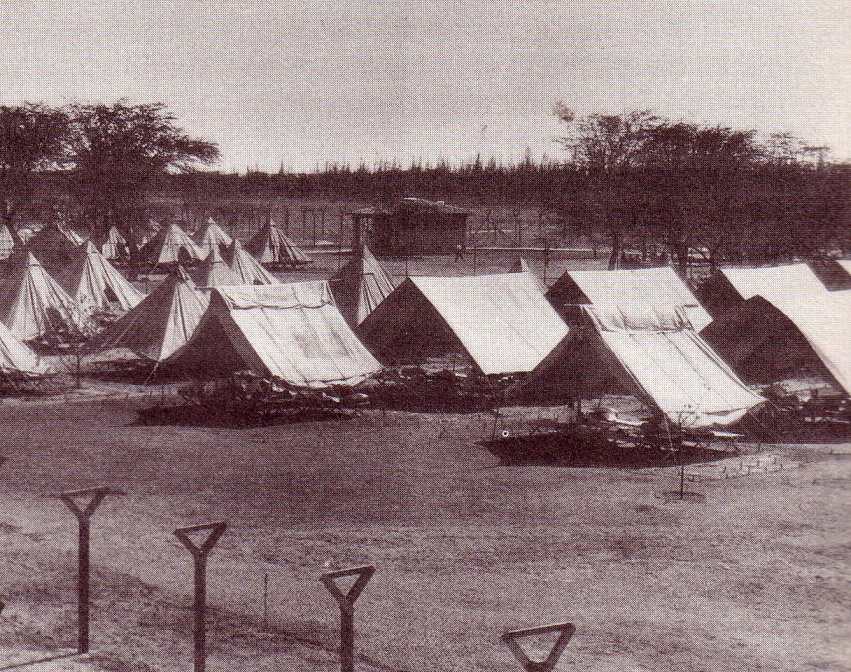
Sand Island, Hawaii

This was a U.S. Army Internment Camp, opened on December 8, 1941 and closed in March of 1943, holding people of Japanese ancestry (men and women), and Austrian, Finish, German, Italian and Norwegian nationals.
The camp was set up on December 8, 1941. It used the existing facilities of a quarantine station operated by the Public Health Service. The army had planned to use it as an internment camp since April of 1941 since it was on an island and could be guarded easily.
There were about 300 internees in the camp after only one week. The camp itself was divided into several sections, one for Japanese men, one for women of any race, and one for Germans and Italians. The camp commander spoke to the prisoners and told them they were prisoners of war.
After the meeting the Japanese males were taken outside, stripped and body searched and made to construct their own tents. The men were not allowed to stay in their tents other than to sleep and if they were sick, however.
The Army backtracked on what they called the internees, referring to them as detainees rather than prisoners of war. If they had actually been considered POWs, then the construction of the tents would have been a violation of the Geneva Convention.
The tents lacked floorboards. The internees were allowed no writing supplies and no newspapers. In January of 1942 a strip search of 164 male Issei internees was held when two spoons and a knife were reported missing after a meal. It turned out the missing utensils were in the kitchen the entire time. In July of 1942 the loudspeakers in each barracks were rigged to monitor inmate's conversations.
The women that were at the camp were often associated with Buddhism or Shintoism and were generally professional women, demonstrating again the government program of rounding up priests and leaders or potential leaders.
The camp itself was run in a manner which was meant on purpose to break the spirit of the detainees, with the people there being treated in a totally inhumane manner (sleeping in flooded tents, using cans and buckets as toilets, etc). Again, if they had been officially POWs then treating them in this manner very probably would have again violated the Geneva Convention, but by calling them detainees the army could get away with almost anything.
Main Index
Japan main page
Japanese-American Internment Camps index page
Japan and World War II index page
|